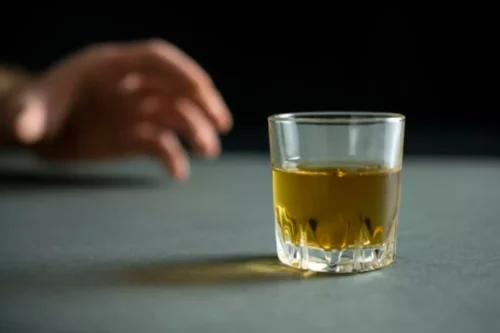
It can take weeks, months, or even years to fully recover from alcohol addiction. One type of medical treatment is medication-assisted treatment (MAT). MAT involves the use of medications, such as methadone or buprenorphine, Sober living house to help manage withdrawal symptoms and cravings.
How to Quit Cocaine: Overcoming Addiction & Withdrawal Symptoms
- Family, group, and individual therapy help people work through their problems, family problems, and peer issues.
- In fact, about 15.1 million Americans are alcohol abusers, and this number doesn’t include people who binge drink on weekends or at special events.
- Participate in therapy sessions, join support groups, and build a strong sober network.
- In the United States, most states have low-cost or free rehabilitation programs for those who are uninsured.
- The number one expert recommendation for making progress in recovery is to consistently engage with a treatment program and recovery community.
- Those with a longer history of alcohol consumption or heavier drinking may experience more severe withdrawal symptoms lasting for 2 weeks or longer.
Sobriety can also help rebuild trust in relationships that may have been damaged by past behavior while under the influence. Long-term alcohol use, for example, is linked to liver damage, heart disease, and an increased risk of certain cancers. Drugs like opioids, stimulants, or even marijuana can cause respiratory, neurological, and cardiovascular issues.
- Seeing people succeed in recovery and change their lives for the better fuels Matt to continually offer support and leadership to the recovery community here at Stages.
- Recovery from alcohol addiction doesn’t happen overnight; there are six distinct stages of alcohol recovery.
- It’s important to connect with a physician to discuss the best path forward for you.
- You may find yourself leaning on your trusted support system a lot and breaking ties with those who do not aid you in your recovery.
Stephanie Franklin, LMFT, LCDC

One of the surprising elements of this stage, though, is that the actions you take aren’t always the best. In fact, it is during this stage of recovery that many people experience their first relapse by turning to drugs and alcohol once again. Relapse can feel discouraging, especially after the work you’ve put in to reach this point of recovery.

The Importance of Individualized Medication Plans
The alcohol withdrawal timeline varies from person to person, depending on factors such as the severity of alcohol abuse and individual health conditions. However, understanding the stages of alcohol withdrawal and what to expect can help you navigate this challenging process more effectively. On the emotional side, many people experience a strong self of resolve in the first 24 hours. Thinking thoughts like “that was my last drink” is common, and the good news is – that truly can be the last time you drank. There can also be a mix of anxiety and excitement when anticipating the journey ahead.
- After a year of work in the chemical dependency field, Stephanie went on to graduate with a Masters in Couple, Marriage and Family Therapy (with a focus in Addiction in the Family) in 2018.
- You enroll or get admitted to the treatment facility and undergo a comprehensive interview and evaluation.
- Stages can occur one after the other, or they can be non-linear, with many returning to previous stages before reaching sobriety.
- It may be useful to think of alcoholism, and addiction in general, this way.
- This stage merely happens when the addict phases out of denial and realizes the reality of the issues they have caused.
So, even if you have been sober for many years, you must still maintain a level of vigilance. You may consider yourself cured as long as you understand that the risk of your addiction returning is always there. After completing alcohol withdrawal, it’s crucial to identify the situations and triggers that may lead to relapse.

Alcohol and drug use compromise your thinking which has, in turn, affect your emotions and behavior. The first necessary step toward recovery is detoxing your body from the remnants of substances. Medically-assisted detox offers the professional assistance and environmental comfort you need to initially achieve sobriety. The Substance Abuse and Mental Health Services Administration’s (SAMSHA) brochure titled “The Next Step Toward a Better Life” explains that recovery is a process that happens in stages. Unsurprisingly, the first stage involves a huge life adjustment as your body and mind learn to function without the interference of substances.
Symptoms can persist for a month or more in the case of post-acute withdrawal. For most people detoxing from alcohol, symptoms subside after five days. If you started your recovery in an alcohol detox and residential rehab, you will now step down the continuum of care to outpatient therapy. During this stage of recovery – especially during high-risk situations – you can employ the coping strategies you have been learning in recovery to minimize your chances of relapse. This means that people in recovery from meth addiction may have problems learning and controlling impulses. It takes time and commitment to overcome lingering problems caused by meth abuse.

Both AA and SMART Recovery offer virtual and in-person meetings, making it convenient for you to get help no matter your schedule. In fact, many people in the beginning phases of recovery find that the constant availability of meetings can make it easier to get through tough moments. As your recovery continues, you may find that supporting others at meetings is just as valuable as receiving support. It is not uncommon for people who want to get sober to have difficulty sharing their desires with their loved ones. stages of getting sober It can be easy to think you may be judged or met with negativity, however taking that leap of faith and reaching out to someone you trust can make a world of difference. He earned a bachelor’s degree in Mechanical Engineering and returned for his MD from the College of Medicine at the University of Arizona in 1990.
Does private health cover inpatient treatment for addiction and rehab?
- If alcohol is interfering with your health or your personal, financial, or professional life, consider quitting.
- Therapy combined with an AUD program tends to lead to a high recovery success rate.
- You can visit the Monument Community to hear from others about their experiences, and attend therapist-moderated support groups to check in with yourself and others.
- Many individuals recovering from meth addiction continue to work on their sobriety after rehab.
After a year of work in the chemical dependency field, Stephanie went on to graduate with a Masters in Couple, Marriage and Family Therapy (with a focus in Addiction in the Family) in 2018. After receiving support from countless loving individuals during her struggle with mental illness, it has been Stephanie’s mission to extend the same level of compassion and care to her clients. She believes counseling is a way for individuals, couples and families to share their experiences and pain, and find ways to transform their darkness into light. Stephanie is especially interested in working with adolescents and adults struggling with addiction and substance abuse, at-risk populations, and couples/families. She works from a systemic perspective with all clients; meaning she gathers information about all areas of an individual’s life to assess needs and the effects that each area may have on the others. Looking through a systemic lens offers the ability for individuals to create lasting transformations through self-awareness about their unmet needs in multiple areas.
